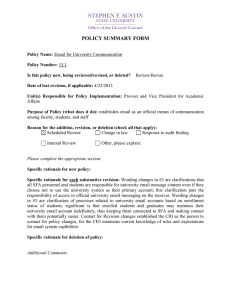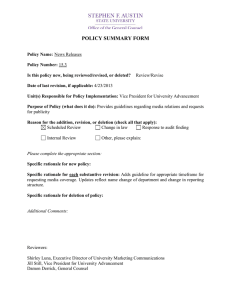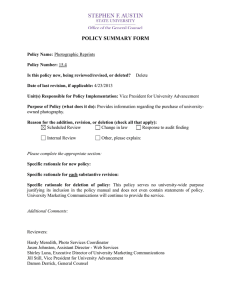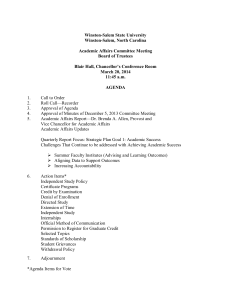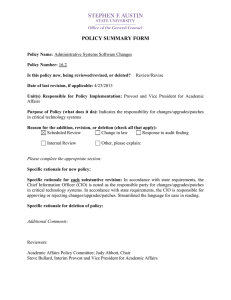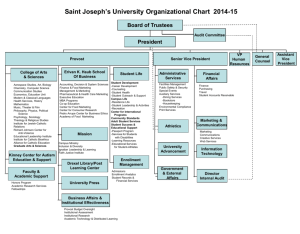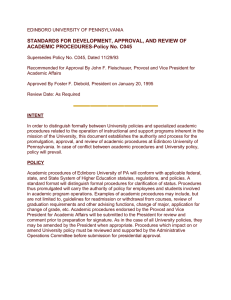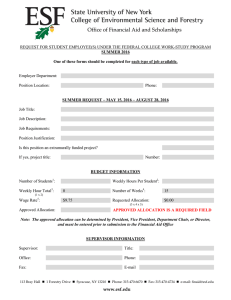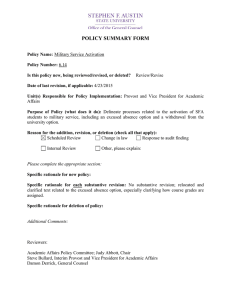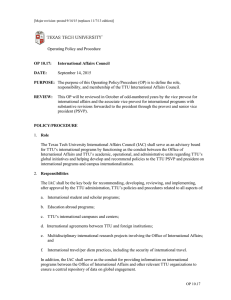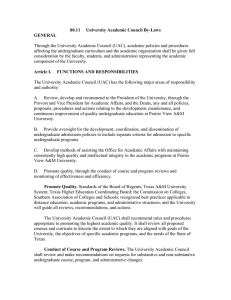POLICY SUMMARY FORM
advertisement
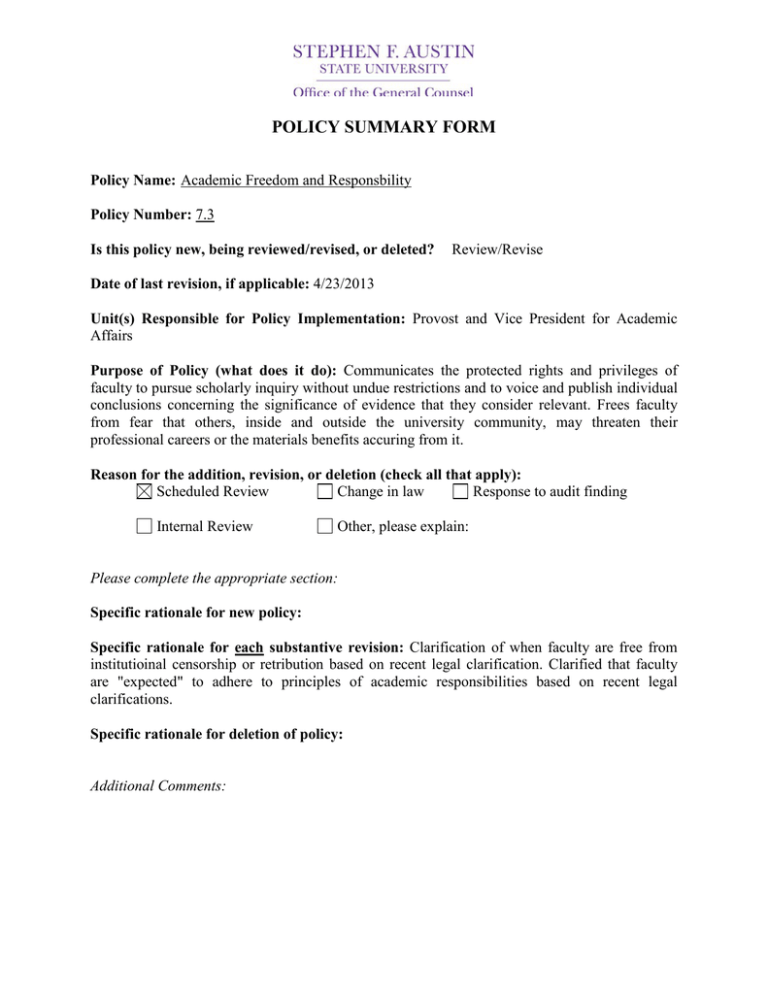
POLICY SUMMARY FORM Policy Name: Academic Freedom and Responsbility Policy Number: 7.3 Is this policy new, being reviewed/revised, or deleted? Review/Revise Date of last revision, if applicable: 4/23/2013 Unit(s) Responsible for Policy Implementation: Provost and Vice President for Academic Affairs Purpose of Policy (what does it do): Communicates the protected rights and privileges of faculty to pursue scholarly inquiry without undue restrictions and to voice and publish individual conclusions concerning the significance of evidence that they consider relevant. Frees faculty from fear that others, inside and outside the university community, may threaten their professional careers or the materials benefits accuring from it. Reason for the addition, revision, or deletion (check all that apply): Scheduled Review Change in law Response to audit finding Internal Review Other, please explain: Please complete the appropriate section: Specific rationale for new policy: Specific rationale for each substantive revision: Clarification of when faculty are free from institutioinal censorship or retribution based on recent legal clarification. Clarified that faculty are "expected" to adhere to principles of academic responsibilities based on recent legal clarifications. Specific rationale for deletion of policy: Additional Comments: Reviewers: Academic Affairs Policy Committee; Judy Abbott, Chair Steve Bullard, Interim Provost and Vice President for Academic Affairs Damon Derrick, General Counsel Academic Freedom and Responsibility Original Implementation: August 1, 2000 Last Revision: April 23, 2013April 12, 2016 Institutions of higher education are operated for the common good, requiring an uninhibited search for truth and open expression. Faculty have legally protected rights and privileges. They are free to pursue scholarly inquiry without undue restriction, and to voice and publish individual conclusions concerning the significance of evidence that they consider relevant. Faculty must be free from the fear that others, inside or outside the university community, may threaten their professional careers or the material benefits accruing from it. Faculty are entitled to freedom in the classroom to discuss relevant topics. Topics introduced in the classroom should be related to the course subject. Faculty must be free from institutional censorship or retribution when speaking, writing, or acting in a public capacityas a citizen of the nation, state and community, subject to the principles of academic responsibility. Faculty should make it clear that they are not speaking for the institution. Even in public discourse, however, fFaculty should are expected to adhere to principles of academic responsibility. The principles of academic responsibility include: 1. Faculty must Mmaintaining competence in their fields of specialization and professional behavior. Evidence of this competence should be displayed in teaching, scholarship, and service, including on-campus and off-campus contexts. 2. Faculty should be judicious in the use when using of controversial material in the classroom and should introduce such material only if it has a clear relationship to the subject field. 3. Faculty should strive to communicate accurately and respectfully; however, faculty who make erroneous or critical statements are may still be protected. 4. When speaking or acting as private persons, faculty must avoid creating the impression that they speak or act on behalf of the university. 5. Faculty statements are not protected free speech if they either substantially impede the performance of their daily duties or materially and substantially interfere with the regular operation of the institution. Cross Reference: Faculty Code of Conduct (7.11); Ethics (2.6); Tex. Educ. Code § 51.354(5) Responsible for Implementation: Provost and Vice President for Academic Affairs Contact for Revision: Provost and Vice President for Academic Affairs Forms: None Board Committee Assignment: Academic and Student Affairs 7.3 Academic Freedom and Responsibility Page 1 of 1
